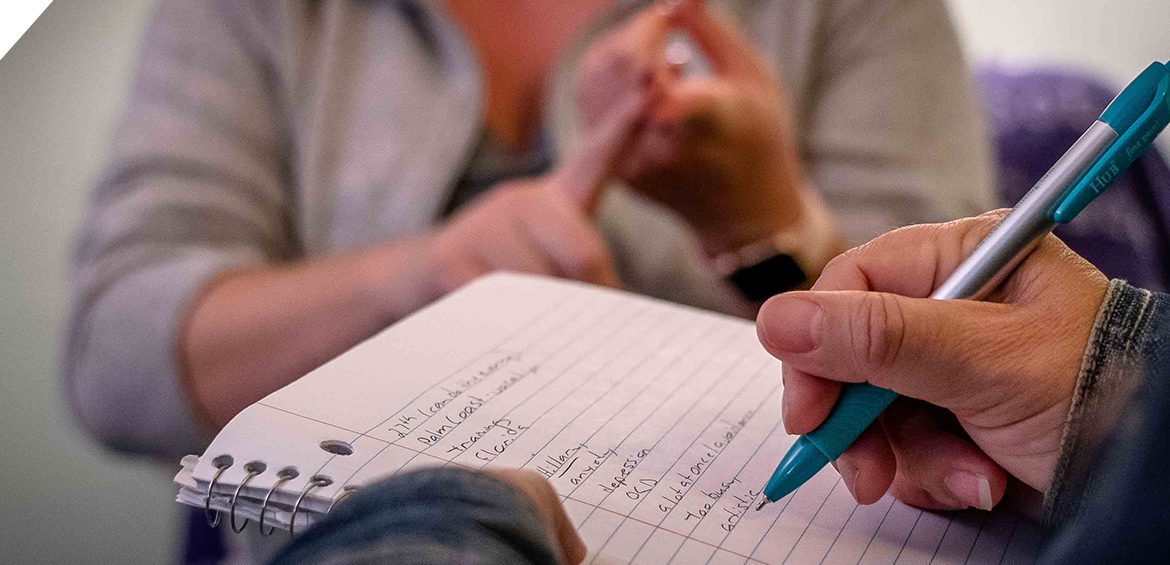The Effects Of Underage Drinking On Teenagers
At Harmony Ridge, we are dedicated to promoting awareness and providing resources to support teenagers and their families in making informed and healthy choices. Your well-being and the well-being of our community's youth are our top priorities.
Because of alcohol’s accessibility, it’s often the first substance that people use or abuse. As a result, many people start drinking alcohol while underage. Unfortunately, because their brains aren’t fully developed yet, teens and youth tend to make more impulsive decisions. This causes teen alcohol abuse rates to be higher. Underage drinking can also cause long-term brain damage.

What Is Underage Drinking?
A person is underage drinking when he or she is consuming alcohol before they can legally do so. In the U.S., underage drinking occurs when a person drinks alcohol before the age of 21.
There are millions of underage drinkers in America. In fact, according to the Substance Abuse and Mental Health Services Administration (SAMHSA), there were 10 million underage drinkers in 2010. Of those 10 million underage drinkers, 6.5 million were binge drinkers and 2 million were heavy drinkers.
Why Do Underage Individuals Tend To Abuse Alcohol?
Underage drinking occurs at high rates because of alcohol’s accessibility and the impulsive nature of teens. Teen brains aren’t fully developed yet, and the pleasure centers in a teen’s brain mature quicker than the parts that are responsible for good decision making.
The fact that teenage brains aren’t fully developed yet also explains why they don’t understand the consequences of abusing alcohol. This is also probably why so many teens binge drink. Teens may also start abusing alcohol due to peer pressure, using it to deal with the increased stresses of life, and increased independence which leads to being able to more easily get access to it.
Underage Drinking Statistics
Underage drinking is still common among teens. According to the 2019 Youth Risk Behavior Survey, within 30 days, 29% of high school students drank alcohol. Also within 30 days, 14% of high school students binge drank alcohol, 5% of teen drivers drove after drinking alcohol, and 17% of high school students rode in a car with someone who was drinking.
Other national SAMHSA surveys report that 19% of young people aged 12 to 20 drink alcohol. 11% of those teens binge drank alcohol within 30 days of taking the survey.
According to these same surveys, 8% of eighth-grade students and 29% of twelfth-grade students drank alcohol within 30 days of taking the surveys. When it came to underage binge drinking, 4% of eighth-grade students and 14% of twelfth-grade students binge drank within two weeks of taking the SAMHSA surveys.
In 2019, 24.6% of 14- to 15-year-olds reported having had at least one drink in their lives. Also in 2019, 7 million teens between the ages of 12 and 20 drank alcohol beyond just a few sips within a month’s time.
People ages 12 to 20 drink 4.1% of all consumed alcohol in the U.S. Despite drinking less often, reports show that when teens do drink, they drink more than adults do in one sitting. In fact, teens consume more than 90% of all of their alcoholic drinks through binge drinking.
As a result, according to the 2019 National Survey on Drug Use and Health, 4.2 million teens reported binge drinking at least once within a month’s time. According to that same survey, 825,000 teens binge drank on 5 or more days within a month.
Underage Drinking In Girls Vs. Boys
Historically, adolescent boys drink and binge drank more than adolescent girls. According to recent reports, though, it seems as if adolescent girls now drink and binge drink more than adolescent boys. Still, boys are more likely to become violent and get into legal trouble due to their alcohol abuse.
This is because girls are more likely to drink to escape family and life problems and deal with stress. Boys, on the other hand, are more likely to drink due to peer pressure and social reasons.
Risk Factors For Underage Drinking
The longer someone drinks, the higher their risk of developing an addiction. There are many factors that may increase this chance – such as age at first use or family history of alcoholism.
With substance abuse comes increased chances for other health problems like liver disease, pancreatitis, and cancerous tumors; all leading to physical limitations and emotional damages alike which can take years from one’s lifespan if they don’t seek help now!
Genetics
A new study has found that alcoholics have a combination of genes that amplify the risk for developing an addiction to drink. These findings are relevant because – until now – scientists looking into why someone becomes alcoholic had thought it was only due to one specific gene, but in reality, genetics play a much more complex role and can be amplified by other genetic factors.
External Pressure
Income also plays a role. Individuals born into wealthy families may be drinking heavily because they can afford it. Currently, 78% of people with an annual household income over $75,000 drink alcohol while only 45% of those who make less than $30,000 do the same. Wealthier individuals are at greater risk to develop alcoholism due in part to their increased access and availability. This generally leads them to consume much higher quantities.
Certain Personality Types
People who are antisocial, withdrawn, depressed, and anxious by nature also tend to drink at earlier ages. People who are rebellious and risk-takers, which many youth are, also tend to drink more than other personality types.
Positive Expectations Of Drinking
Religious Factors
Signs Of Underage Drinking
People exhibit growth and change during their teenage years. This growth and change will usually include behavioral changes. Just beware as some behavioral changes in teens are warning signs of an actual issue. Some warning signs of underage drinking in teens include:
- Increased anger and irritability
- Sudden academic and behavioral problems in school
- Increased rebelliousness
- Change in social circle
- Lower energy levels
- Loss of interest in activities that once interested the teen
- Poor personal grooming and hygiene
- Finding alcohol amongst a teen’s possessions
- The smell of alcohol appearing on a teen’s breath
- Problems concentrating
- Problems remembering things
- Sudden poor coordination
- Frequent slurred speech
Negative Effects Of Underage Drinking
The effects of underage drinking are almost always negative. This is because the undeveloped brain is not equipped enough to handle excessive alcohol abuse.
Teens are impulsive enough when they’re sober, even more so when influenced by alcohol. Thus, some of the main consequences of teenage drinking are described below.
Brain Damage
Excessively abusing alcohol while an adolescent can cause brain damages. It can also alter the way the brain functions for the rest of a teen’s life. Underage drinking can even alter the coordination and motor skills of a teen for the rest of his or her life.
Liver Damange
Excessively drinking can also cause liver damage, especially in teens who underage drink. This is evident in the fact that there are elevated liver enzymes that only occur when there is liver damage in the livers of teens who drink. This is partially due to the fact that underage drinking increases the number of years that a person abuses alcohol. Teenage drinkers that are also overweight tend to show more elevated levels of liver enzymes with only moderate levels of underage drinking.
Damage To A Teen’s Growth And Endocrine System
Teenagers go through puberty and hormone changes. These hormone changes are vital for growth and organ development. Thus, underage drinking during this time of growth, change, and development can upset a teen’s critical hormone balance. This, in turn, can negatively affect the development of a teen’s organs, muscles, bones. It can also negatively affect the maturation of teens’ reproductive system.
Increased Amount Of Car Crashes
One of the common negative effects of underage drinking is fatal car crashes. This is especially true since teens only have a few years or less of driving experience.
In fact, car crashes are a leading cause of death for teens. Furthermore, one-fourth of those car crashing deaths involve a teen that is underage drinking.
Increased Sexual Activity
Teens that underage drink also tend to not use protection when they are intimate with someone else. Thus, underage drinking often leads to teenage pregnancies and the exchanging of STDs among teens.
Sexual Assault And Other Forms Of Violent Behavior
Mental Illness
Depression and low-self esteem due to underage drinking can then lead to anxiety, antisocial behavior, and abuse of other substances. Adolescents and college students who use alcohol also report higher rates of academic problems.
Chronic Health Issues
Drinking during puberty can also negatively affect the bone density development of a teen. This could cause that teen to develop osteoporosis later on in life.
Underage Drinking Prevention
To come up with an effective way to prevent underage drinking, you must consider the genetic and environmental factors that lead to underage drinking. You must also take into consideration where your teen is at in his or her physical development.
The best way to prevent further underage drinking is to conduct an intervention during periods of rapid transition in a teen’s life. By a time of rapid transition, we mean a time in which the social and cultural factors of underage drinking are most strongly influencing the behavior and biology of adolescents.
The two major categories of preventative interventions for underage drinking are environmental-level interventions and individual-level interventions. Environmental-level interventions include changes in the policies regarding alcohol consumption, creating new programs at schools and community centers that can mitigate the risk of alcohol abuse amongst teens, and setting new rules of forms of communications amongst families when it comes to teenage drinking. Individual-level interventions for underage drinking changes the way young people think about alcohol.
Contact Harmony Ridge Today!
The first step toward achieving recovery is to reach out to one of the rehabs in WV that can get you on the track to recovery. Our admissions team is available 24 hours a day, 7 days a week, 365 days a year. Give us a call today!
Contact Us TodayTreating Underage Drinking Problems
The best way to treat underage drinking problems is to form an intervention. If a teen is exhibiting excessive underage drinking, then the intervention you give the teen should end with referring him or her to detox and addiction treatment.
Detox for alcohol abuse should occur in a medical form. Addiction treatment for alcohol abuse should occur in residential or inpatient form.
Once a teen finishes attending detox and rehab for alcohol abuse, that teen should then receive aftercare services. Through aftercare services such as attending Alcoholics Anonymous meetings or continuing therapy, your teen can maintain sobriety from alcohol that can carry over into adulthood.
Harmony Ridge Recovery Center Provides Addiction Treatment For All Ages And Genders
At Harmony Ridge Recovery Center, we believe everyone deserves a life that’s free from drug and alcohol abuse and addiction. This includes teens. That’s why we provide different types of detox and addiction treatment programs for a wide variety of substances.
That’s also why we provide specialized rehab programs based on gender and age. In fact, Harmony Ridge has a rehab program that’s made just for teens that struggle with issues like underage drinking. Through our young adult rehab program, we address abuse and addiction issues that specifically relate to teenagers.
To learn more about the different detox and rehab programs that we offer here at Harmony Ridge Recovery Center, contact us today!
Jump To Section
Begin Your Journey to Healing Here
Ask me about recovery, I can help you!
Our recovery specialists are standing by 24/7 to help you or your loved one.
Or call us: 



